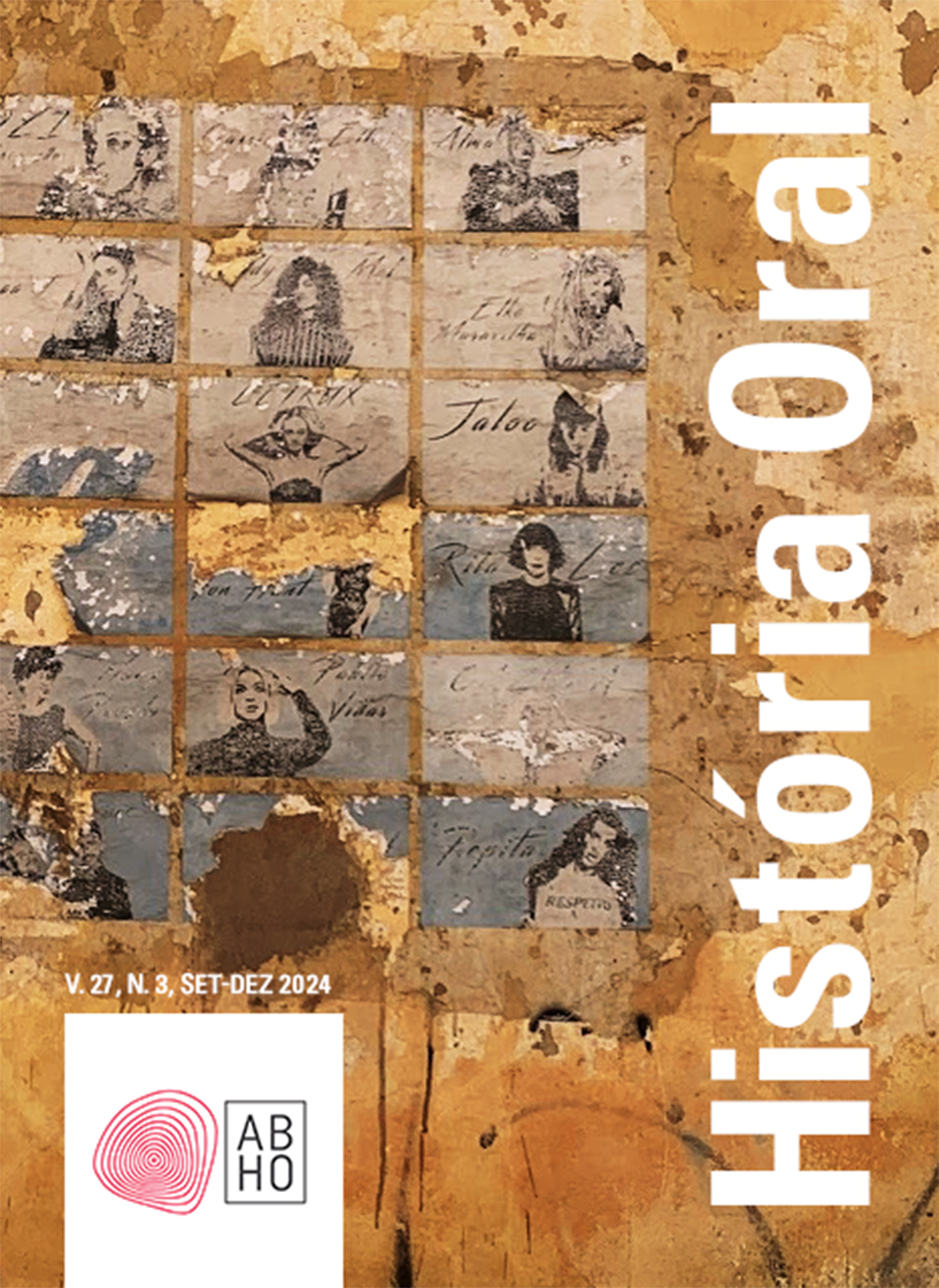Memórias alimentares em Seropédica: as receitas de aipim e suas conexões afetivas nos universos familiares
DOI:
https://doi.org/10.51880/ho.v27i3.1454Keywords:
Patrimony education, Envitonmental education, Food cultureAbstract
This article consists of research carried out in the neighborhood of São Miguel, in the municipality of Seropédica, in Baixada Fluminense of Rio de Janeiro. This research sought to understand the relationships between local food culture, Family memories and the idea of cultural heritage. The object of research, therefore, was the cassava recipes of families belonging to the school communities of the Vera Lúcia Pereira Leite Municipal School and the Atílio Grégio Municipal School in that location. The research was developed based on ethnographic prerogative. During the field research, meetings were held with the respective school communities called “Cafés com prosa”. The “Cafés com prosa” were avents Where cassava was used as a facilitation tool, being served in different ways and in different recipes in order to create a welcoming environment. Likewise, in these meetings, data was collected, that is, listening and recording the recipes and Family memories that were shared. By analyzing these shared recipes, this research demonstrated that they have depths and complexities that intertwine territorial, affective and Family aspects. We believe, therefore, that this article helps to understand the importance of food memories and affective eating to reflect on their potential in understanding cultural heritage and its role in valuing rural and peripheral territories.
References
ALENTEJANO, P.; CHUVA, L. Território. In: Dicionário de agroecologia e educação. Orgs: Alexandre Pessoa Dias et al. São Paulo: Editora Expressão Popular LTDA, 2021.
ALVES, José Claudio Souza. Baixada Fluminense: a violência na construção do poder. São Paulo: USP, 1998. Disponível em: https://www.teses.usp.br/teses/disponiveis/8/8132/tde-20122022-110956/pt-br.php. Acesso em: 02 abr. 2024.
AZEVEDO, E. de. Alimentação, sociedade e cultura: temas contemporâneos. Sociologia, Porto Alegre, ano 19, n. 44, jan/abr, 2017. Disponível em: https://www.scielo.br/j/soc/a/jZ4t5bjvQVqqXdNYn9jYQgL/?format=pdf&lang=pt. Acesso em: 20 set. 2022.
BARROS, J. D`A. História, região e espacialidade. Revista de História Regional 10(1): 95-129, Verão, 2005.
EMBRAPA. Embrapa Mandioca e Fruticultura. 2022. Disponível em: https://www.embrapa.br/mandioca-e-fruticultura/cultivos/mandioca. Acesso em: 2 fev. 2024.
GEERTZ, C. “Uma descrição densa: por uma teoria interpretativa da cultura”. In: A Interpretação das Culturas. Rio de Janeiro: Guanabara Koogan, 1989.
HALBWACHS, M. A memória coletiva. Tradução: Laurent Léon Schaffter.
São Paulo: Vértice, 1990.
IBGE, Instituto Brasileiro de Pesquisa e Estatística. Censo demográfico 2010 – resultados
do universo. Rio de Janeiro, IBGE, 2001.
MINTZ, S. W. Comida e antropologia: Uma breve revisão. Rev. bras. Ci. Soc. São Paulo, v. 16, n. 47, p. 31-42, out. De 2001. Disponível em: <http://www.scielo.br/scielo.php?script=sci_arttext&pid=S0102-69092001000300002&lng=en&nrm=iso>. Acesso em: 14 ago. 2019.
MORAIS, L. P. Comida, identidade e patrimônio: articulações possíveis. História: Questões & Debates, Curitiba, n. 54, p. 227-254, jan./jun. 2011.
POLLAK, M. Memória, esquecimento, silêncio. Estudos Históricos, Rio de Janeiro, v. 2, n. 3, 1989, p. 3-15.
ROCHA, L de M. Da “cidade integrada” ao “empreendedorismo”: participação e gestão nas margens em tempos de “pacificação”. 38º Encontro Anual da Anpocs Caxambu - Minas Gerais. Outubro de 2014.
SANTOS, A. dos S. S. Percepção de professores e alunos frente à agricultura orgânica na Escola Estadual Municipalizada Professora Creuza de Paula Bastos em Seropédica-RJ. Seropédica: UFRRJ, 2014.
UNESCO. Convenção para a salvaguarda do patrimônio cultural imaterial. Paris, 17 de outubro de 2003.
VIANNA, M. de A. A agricultura familiar em Seropédica-RJ: Gestão social, participação e articulação dos atores do polo de conhecimento local em agropecuária. Seropédica: UFRRJ, 2017.
WOORTMANN, E. F. A comida como linguagem. Revista Habitus - Revista do Instituto Goiano de Pré-História e Antropologia, v. 11, n. 1, p. 5-17, 2013.
WOORTMANN, K. O sentido simbólico das práticas alimentares. In: ARAÚJO, W.; TENSER, C. (Org.). Gastronomia, cortes e recortes. Brasília: Editora SENAC, 2006.
Downloads
Published
How to Cite
Issue
Section
License
Copyright (c) 2024 História Oral

This work is licensed under a Creative Commons Attribution-NonCommercial-NoDerivatives 4.0 International License.
A revista História Oral é licenciada de acordo com a atribuição Creative Commons BY-NC-ND 4.0 (Atribuição-NãoComercial-SemDerivações 4.0 Internacional). Dessa forma, os usuários da revista têm o direito de compartilhar livremente o material, copiando-o e redistribuindo-o em qualquer suporte e formato, desde que sem fins comerciais, fornecendo o crédito apropriado e não realizando mudanças ou transformações no material. Para maiores informações, ver: https://creativecommons.org/licenses/by-nc-nd/4.0/deed.pt_BR








